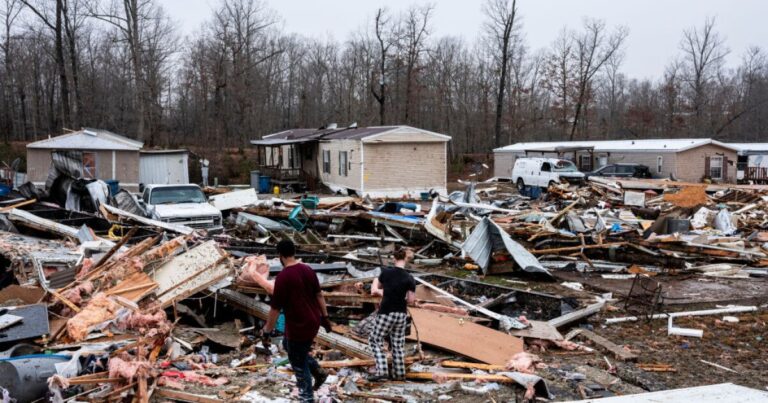
Brad Vest/Photographer: Brad Vest/Getty Im
Individuals and businesses in parts of Mississippi and Texas who were affected by severe weather that began in March now have until Nov. 3 to file various federal individual and business returns and make tax payments.
The IRS is offering relief to any area designated by the Federal Emergency Management Agency. In Mississippi, where straight-line winds, tornadoes and flooding began on March 14, individuals and households that reside or have a business in Calhoun, Carroll, Covington, Davis, Grenada, Humphreys, Issaquena, Itawamba, Jefferson Davis, Lee, Leflore, Marion, Montgomery, Pike, Prentiss, Sharkey, Smith, Walthall and Washington Counties qualify for this relief.
In Texas, where storms and flooding began on March 26, individuals and households that reside or have a business in Cameron, Hidalgo, Starr and Willacy Counties qualify for relief.
(The current list of eligible localities is on the IRS Tax Relief in Disaster Situations page.)
The Nov. 3 deadline for both states applies to individual income tax returns and payments normally due on April 15, 2025. It also applies to 2024 contributions to IRAs and health savings accounts for eligible taxpayers and to estimated tax payments normally due on April 15, June 16 and Sept. 15, 2025.
Penalties on payroll and excise tax deposits due on or after March 14 and before April 10 in Mississippi will be abated as long as the tax deposits were made by April 10. In Texas, penalties on payroll and excise tax deposits due on or after March 26 and before April 10 will be abated as long as the tax deposits were made by April 10.
The new November deadline also applies to affected businesses in both states:
Quarterly payroll and excise tax returns normally due on April 30, July 31 and Oct. 31, 2025.Calendar-year corporation and fiduciary returns and payments normally due on April 15, 2025.Calendar-year tax-exempt organization returns normally due on May 15, 2025.
If an affected taxpayer receives a late filing or late payment penalty notice from the IRS that has an original filing, payment or deposit due date that falls within the postponement period, the taxpayer should call the number on the notice to have the IRS abate the penalty.
The agency automatically identifies taxpayers located in covered disaster areas and applies filing and payment relief. Affected taxpayers who reside or have a business located outside a covered disaster area should call IRS Special Services at (866) 562-5227 to request relief.
Tax practitioners in covered disaster areas who maintain records necessary to meet a filing or payment deadline for taxpayers located outside the disaster area, may contact IRS Special Services; if the practitioner maintains the necessary records of ten or more clients, they should refer to Bulk requests from practitioners for disaster relief for guidance.
Taxpayers in an installment agreement or payment plan will continue to receive reminder notices, and direct debits will continue. Missed payments will not cause an agreement to default during the postponement period.
Individuals and businesses in a federally declared disaster area who suffered uninsured or unreimbursed disaster-related losses can choose to claim them on either the return for the year the loss occurred (in this instance, the 2025 return normally filed next year), or the return for the prior year (2024). Taxpayers have up to six months after the due date of their federal income tax return for the disaster year (without regard to any extension of time to file) to make the election. For individual taxpayers, this means Oct. 15, 2026.
Tax preparers or taxpayers should write the relevant FEMA declaration number — 4874-DR for Mississippi, 4871-DR for Texas — on any return claiming a loss.


